Alexis Lantgen's Blog, page 7
December 27, 2020
Review: Black Thorn, White Rose
One of the great things about having a nice long Christmas break is that I finally get the time to read through all the books I’ve steadily accumulated over the year. This Christmas, in part because Covid has kept us from going out or doing many parties/activities/concerts, I have read a lot of books!
One I read recently is Black Thorn, White Rose, a collection of fairytale retellings edited by Ellen Datlow and Terri Windling. I’d read a couple of other books in their collections of retellings (The Green Man: Tales from the Mythic Forest and Black Swan, White Raven) quite a while ago, and I was interested to read more. Black Thorn, White Rose is the second book. Like other books, I didn’t love every story, but most of the stories were entertaining and fun to read, and a couple were brilliant little gems. I loved Godson by Roger Zelazney, Tattercoats by Midori Snyder, and The Black Swan by Susan Wade. Godson is a dark and clever tale with plenty of funny little twists to keep it interesting. Tattercoats is a sweet and touching story about a married woman reconnecting to her husband by exploring her dark, mysterious, and wild side. I loved that this story shows that even a happy marriage takes work, and that sometimes exploring and freeing ourselves is the best way to connect with another person. The Black Swan is something of the opposite of Tattercoats—it’s more of a haunting fable about the consequences of someone molding themselves to shape the desires of the people around them, and maybe about the subtle and heart breaking consequences of not recognizing that a true love would never want a change like that.
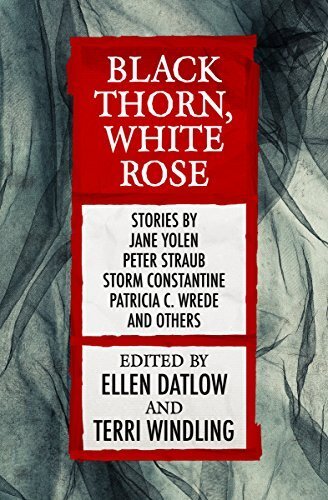
The only story I could not get into was The Sawing Boys by Howard Waldrop, which had maybe just too much dialect and too many characters with complicated names. I got confused and skipped over it.
I also had mixed feelings about Peter Straub’s Ashputtle. It was a very intense and horrifying story, but some of the madness and violence felt like it came out of nowhere. I could quite grasp the main character’s intense hatred of her stepmother or the child in her care, and some of the rest of the story felt too bizarre to really make sense. It did, however, have some visceral and powerful imagery.
There were also several stories I enjoyed, including Stronger Than Time, Words Like Pale Stones, Ogre, and The Brown Bear of Norway. Both Stronger Than Time and Words Like Pale Stones were haunting tales, while Ogre was a charming comedy about community theater. The Brown Bear of Norway was a strange and sweet romance about adolescence and change.
Overall, like their other collections, I’d recommend Black Thorn, White Rose to anyone who enjoys fairytales and fantasy short stories. It’s fun and quick to read, and I always love seeing a creative spin on beloved stories.
author interview
book review
books
fantasy
science fiction
very short stories
Saints and Curses
December 14, 2020
How Irish Legends Inspired a Sci-fi Trilogy about Getting Younger: Guest Post by Byddi Lee
As I was growing up, the Irish legends that captured my imagination most were not the daring-does of Cuchulainn – The Hound of Ulster nor the stories of Macha – the queen who gave her name to my home town Armagh. In fact, the ancient warriors and royalty didn’t interest me at all, but those stories that involved distorted ageing and extended longevity did. It was an indulgence of sorts to weave the essence of these stories into The Rejuvenation Trilogy.
Rejuvenation is set in a dystopian future. There are matter streamers to provide food, hovercrafts for transportation, and carebots to tend to the frail. Against this backdrop of technology, we see a society that is top-heavy with an aged population. People still yearn to be and stay young.
The Irish fairy tales have stood the test of time and inspire the children of that era, such as our main characters, Bobbie and Gracie, fraternal twins. Gracie suffers from a rapid ageing disease called Progeria and is particularly drawn to the stories of Tír na nÓg, the Land of the Forever Young that’s far across the waves and can only be reached by a magic horse as she explains to Bobbie…
‘“I’m no angel,” Gracie said, grinning. “I’m one of the little people, a leprechaun! And I’m going to escape to Tír na nÓg.”
“To where?” Bobbie asked.
“The land of everlasting youth. Everyone is beautiful and young there, and when I go there, I’ll look just like you,” Gracie said. “But with black hair, like Daddy.”
“How do you know all this?”
“I read about it on the Internet.”
“Can I come?” Bobbie couldn’t imagine being anywhere without Gracie.
“Yes, but you’ll have to wait until when you’re old. Like me.” Gracie’s fuchsia pink dress reflected off her skin, giving her bare, veined scalp an ethereal glow.
“But you’re only nine. We’re the same age.”
“Yes, but I’m the one who’s a fairy, remember? I’ll watch over you from Tír na nÓg. Time passes slower there than it does in Armagh, so it will only feel like ten minutes to me before you’re there, too.”’
Excerpt from Rejuvenation Book 1
The Children of Lir is another example of a legend that tells of excessive ageing and longevity. Lir’s children are turned into swans by their stepmother and sent into exile for three hundred years. They returned to their home in Ireland and resumed human form – as three-hundred-year-old humans – then they died. I’m grossly paraphrasing, but nonetheless, it’s a tragic tale.
We find out early in Rejuvenation Book 1 that Gracie died at the age of 13 from her condition. Her death left a lasting effect on her twin sister Bobbie who, feeling she had acquired a special understanding of ageing because of Gracie, went on to become a geriatrician. In Rejuvenation Book 2, Bobbie uses the fairy tale of the Children of Lir to try to make sense of ageing and death in the real world, a challenge for her since she sees both daily in her job.
Other Irish fairy tales hold more promise, like the one about Fionn Mc Cool being tricked by the old witch, the Calliagh Berra on top of Slieve Gullion, the highest mountain in County Armagh. As the story goes, one day Fionn found a young woman crying by the lake at the top of the mountain. When he asked her why she said she’d dropped her gold ring into the lake. Being the hero he was, he jumped in after it. But the girl was the old witch who was jealous of her sister for being in love with Fionn. The witch had put a spell on the lake so that when Fionn came out, he had aged to become a withered old man with white hair. But Fionn’s followers made the witch reverse the spell, and he became young again.
The Rejuvenation Trilogy is all about regaining lost youth and its consequences. Bobbie’s most elderly patients contract a strange disease which proves fatal to some but others, including her Granny, survive and become younger, fitter and psychopathic!
I was drawn to the idea that eternal youth wasn’t exactly the be-all and end-all and wanted to explore the gifts that come with age. In a society that values the beauty of youth, that’s quite a challenge, but even the Irish legends will have us realise that the beauty of youth is only skin deep as in the story of Oisin, Fionn Mc Cool’s son.
As the story goes, Oisín falls in love with Niamh, a woman of the Otherworld. She takes him across the waves on a magic horse to Tír na nÓg. After what feels like three years to Oisín, he becomes homesick and wants to return to Ireland. Niamh warns him to stay on the magic horse and never to touch the ground. But when Oisín returns, he discovers that 300 years have passed in Ireland. He falls from the horse and instantly ages. As the years catch up with him, he quickly dies.
In Rejuvenation Book 1 this same legend is reflected in several instances of age catching up quickly on a youthful body and although this legend is not actually recounted, it forms the basis of some of Bobbie’s nightmares.
‘By the time Death carried Gracie to Tír na nÓg four years later, Bobbie had read scores of legends about the Land of the Forever Young. Alone in the bedroom, Bobbie had once shared with Gracie, she’d jolt awake after dreaming of her twin sister returning for her on a white horse, young and beautiful, her black hair billowing out behind her. Bobbie would reach for Gracie, but as their hands touched, Gracie’s hair would turn white, her skin would wrinkle, her body crumple as she died all over again from old age.’
Excerpt from Rejuvenation Book 1
I think ultimately the idea of folding the old fairly tales into a high-tech dystopian future is a metaphor for life – we can’t forge ahead and embrace the new and the vivacious unless we can carry with us and learn from the stories and wisdom from years gone by.
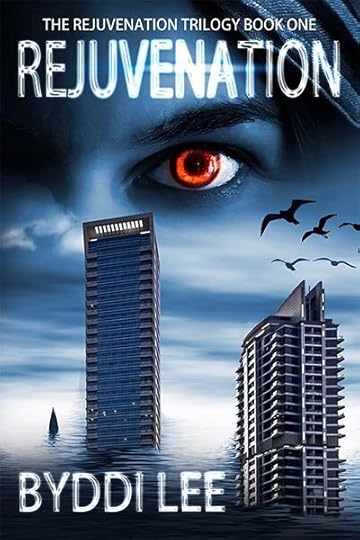
Cover of Byddi Lee’s Rejuvenation
About Rejuvenation by Byddi LeeSynopsis:
The Melter War has left the Earth’s surface devastated, leaving humanity to survive on what little land is left between the Scorch Zones and the rising oceans, where towering scubscrapers dot the dystopian shorelines.
Bobbie Chan is a doctor caring for the ultra-elderly in one such subscraper when she notices a mysterious, new disease afflicting her patients; some show signs of age reversal before a catastrophic, and often fatal, cardiac arrest strikes.
Bobbie begins to wonder if she is witnessing a bio weapon in full force. A Melter attack? Are they destined to finish the war they started?
Bobbie begins a race against time to rescue the Rejuvenees and uncover their true enemy

Picture of Byddi Lee, author of Rejuvenation
More about Byddi Lee, author of Rejuvenation
Byddi Lee grew up in Armagh and moved to Belfast to study at Queen’s University. She has since lived in South Africa, Canada, California and Paris before returning to live in her hometown, Armagh.
Her Rejuvenation Trilogy, is published by Castrum Press and Rejuvenation Book One, Book Two and Book Three all available now. Book One is also out in audiobook.
She has published flash fiction, short stories and, in 2014, her novel, March to November. Byddi has also co-written the play IMPACT – Armagh’s Train Disaster with Malachi Kelly and Tim Hanna. IMPACT was directed by Margey Quinn and staged by the Armagh Theatre Group in the Abbey Lane Theatre June 2019.
During the COVID 19 pandemic when all theatres were closed, Byddi teamed up with Malachi and Tim to write Zoomeo & Juliet and Social Bubble Toil & Trouble suitable for live performance delivered through Zoom, produced by Margery Quinn and performed by the Armagh Theatre Group.
Byddi is a co-founder of the spoken word event Flash Fiction Armagh and is co-editor of The Bramley – An Anthology of Flash Fiction Armagh.
Author LinksBook links: Rejuvenation, Rejuvenation 2, and Rejuvenation 3
Social Media: Newsletter, Facebook, and Twitter
Website: https://www.byddilee.com/
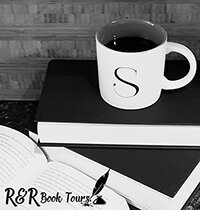
author interview
book review
books
fantasy
science fiction
very short stories
Sapience
December 7, 2020
Interview with Eric Johnson, Author of Red Eyes
My next author interview is with Eric Johnson, the author of Red Eyes.
What book or books have most influenced you as a writer?Eric Johnson: David Drake’s Hammers Slammer’s series has influenced me a lot. It brought a military veteran’s experience into writing and how it could be used to bring up issues that concern me as a military veteran myself. His work set the tone for my books and writing style, which I emulate due to fascination of making current military issues into readable fiction
What are some tropes of fiction in your genre that you love/hate? Why?Eric Johnson: I love the military tone that my genre entails. As a military veteran it helps to have the normal trope of crazy military vets and also a focused unit and the ethos it brings up.
Who is your favorite character in your book? What do you like about them? (or, which character do you hate most and why)Eric Johnson: Major Veerkamp as she’s nuts and doesn’t care much about who she offends or deals with. She’s a definite fav to write as she is crazy yes, but she does it in a way that shows that she does it for a reason (that means much to her) and is aware that she’s got issues but somehow appeals to me as a character I’ve started to use more and more.
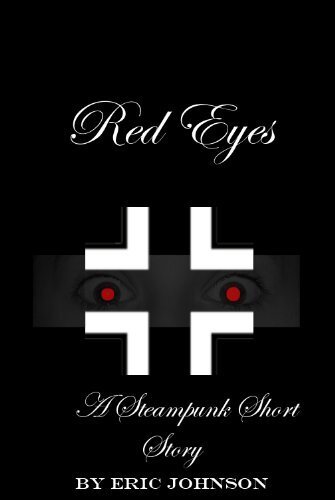
Cover of Eric Johnson’s Red Eyes
What are you doing to de-stress during the pandemic? Is there any coping mechanism you’d recommend (or NOT recommend)?
Eric Johnson: Well the pandemic hasn’t affected me as most people so I can recommend that getting through this is important and want to stress that while you’re restricted (or not) that life still has to go on and that things will be alright.
What do you like to do other than read or write? Do you have any interesting hobbies?Eric Johnson: Video gaming is one of my hobbies. But I have artistic talent and usually create something for my stories or something that I need to visualize for my stories, if needed.
What TV shows/Movies do you like to watch or stream?Eric Johnson: I watch a variety of movies, mainly military or some other form of movie. I do like Marvel Cinematic Universe movies a lot and watched most of them up till now
What’s your favorite animal?Eric Johnson: Cats are my favorite animal. I own a cat and love him dearly and couldn’t ask for a better animal to take care of.
Do you like playing video games? What’s your favorite game right now? Has a video game ever influenced you as a writer?Eric Johnson: I currently play The Division 2 and it influences me into writing a story where a pandemic happens. My characters will get involved somehow and there’s the story I guess. I haven’t worked out the details yet (I have other WIPs to worry about right now) but that’s a future story that features a pandemic (which is influenced by the current one now).
Do you like playing board games or role playing games like D&D? If so, which games do you like best?Eric Johnson: I like D&D and have played it in the past. Unfortunately I don’t know anybody nearby that plays the game or I’d probably join a group and play.
What advice do you have for other writers or people just getting started in writing?Eric Johnson: That it’s a long hard path for some and that to stick with it even though it may take a long time. It takes me sometimes a long time to write even a short story but I just say stick with it until you get published, whether it being self- or traditional publishing
How do you choose what books you want to read?Eric Johnson: Mainly based on interest and whatever appeals to me at the time. Some books I buy are to learn a subject (sometimes non-fiction) and other related stories to help form ideas based on my own desires in what I want to write in the future.
If you write sci-fi, what technology or innovations or scientific discoveries have inspired your work?Eric Johnson: So far the railgun has influenced my work a lot. A lot of weapons in my stories is based on that technology. However, I somewhat keep aware of future theories or ideas based on current theory and practice. Sometimes though I incorporate those ideas into writing if it sounds good enough or is plausible enough to use.
More About Eric JohnsonBooks: Red Eyes, Operation Arrow, and 5th Kommando
Website: http://flanker56.com/index.htm
Social Media: Goodreads and Twitter
author interview
book
book review
books
fantasy
science fiction
very short stories
Sapience
November 23, 2020
Interview with M.J. Irving, Author of Nova's Quest for the Enchanted Chalice
My next interview is with M.J. Irving, author of Nova’s Quest for the Enchanted Chalice!
What inspired you to start writing?M.J. Irving: I hate to start on a negative note, but in March I came down with Covid. I was extremely sick for weeks and with so much on the news about people of ethnic minorities being at higher risk and also people with underlying health conditions, there were times that I thought that was it for me! It is scary when at times you cannot breathe properly, and you feel so unwell you can’t get out of bed. I obviously have felt so grateful that I came out the other side of my illness, but it really made me stop and think about how life is so short, and that you need to do the things that you are passionate about. The present is truly a gift so don’t wait for the future!
Alexis: I’m so glad you recovered! I’ve heard so many devastating stories about Covid, and even young people are getting very, very sick. Readers, don’t forget to wear your masks, wash your hands, and stay six feet apart!
Have you always wanted to be a writer?M.J. Irving: Yes, almost always. Well, apart from when I was really young and wanted to be a marine biologist or vet because I love animals. I was always worried because you hear about how writers and artists can never make it. I didn’t want to be in that situation, so I made the idea of writing in to something that I pictured myself doing when I was old and grey. But, after my illness earlier in the year, I thought, what is stopping me? Plus, with lots of holiday days and no holiday to go on because of Covid, I thought why not spend those days writing? I have also been lucky enough to know a few authors who inspired me over the years and their successes made me realize that I can do it too! If you put your mind to it, even your wildest dreams can come true.
Alexis: Yes, it’s so easy to put things off and assume we have all the time in the world. But no one does, and the time goes by so fast!
Pantser or Planner?M.J. Irving: I’m both. At first, I didn’t think I was since I organize everything in my life. I am bad at remembering things, so I have always been good at keeping myself organized so that I don’t forget what I’m doing. With Nova’s Quest I spent two weeks planning out everything: the settings, the characters, the cliff hangers etc. But, once I started writing it was like the characters took on a life of their own and they surprised me. The story became a living thing, an entity with its own volition and I became its servant – the humble writer. It was a strange feeling since I had control over the story but it had its own special power all at the same time!
What do you hope your readers take away from your book?M.J. Irving: From an entertainment perspective, I honestly really hope that readers just have fun with the story, that they feel hooked and don’t want to put it down. I hope that they want to hear more about Nova’s Quest because there is so much more to come! From the perspective of the message that I am trying to deliver, there really are a number throughout the book. One is really the importance of standing up for what is right and making change collectively in the face of adversity and corruption. I don’t want to give any spoilers so I will stop there.
Alexis: I feel that the last few years, at least in the United States, have definitely shown how absolutely important it is to stand up to corruption and do what’s right.
What made you pick the setting for your book?M.J. Irving: I actually wanted to play with high fantasy and low fantasy settings so you essentially get two worlds. One setting is a lot more like the world we live in today, and another is like a colourful painting bringing all of the wonderful things of fantasy all together. In the series, I intend to build on these worlds and reveal a whole lot more. I also wanted to bring a fantasy world to Canada and to a place that I hold dear to my heart. The world of Dacaan is depicted with every drop of beauty that I found in the place where I spent my high school years – in the Kootenays in the province of British Columbia. I really believe that it is one of the most beautiful places in the world! I obviously recreated the region in to a fantasy world but I used a lot of place names and reference the beautiful mountains, lakes, trees, streams and so on.
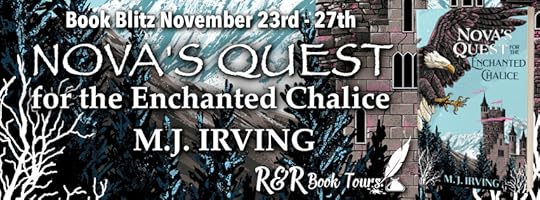
Nova’s Quest Book Blitz Banner
Are you reading anything right now?
M.J. Irving: I am in the middle of reading my way through a few series including Scythe as well as Caraval and Six of Crows. I love anything fantasy and dystopian but I do read all genres and am keen to one day write in other genres too.
What do you like to do when you aren’t writing?M.J. Irving: I really love travelling. I’ve travelled to over 50 countries and really love feeling immersed in other cultures and experiencing different things – I really believe travelling is the easiest way to building yourself as a person – it opens your mind! Obviously, this year I haven’t been able to travel quite so much and have just had one staycation in Cornwall with my boyfriend. I do however love hikes in the wilderness and exploring nature. That is probably my happy place.
Alexis: I also love hiking and being outdoors. Travel can be so wonderful!
What’s for dinner?M.J. Irving: I love, love, love to cook! And to eat, haha. I like to cook almost anything and wish I was better at baking, but find that harder because you have to have patience and follow recipes. Plus I’ve never been good with numbers and measurements. A teaspoon can all of a sudden get mixed with a tablespoon and you’ve ruined your treat! My favourite food is most definitely seafood and more specifically lobster, but I like to save that for special occasions because it tastes even better then! My favourite sweet treat is chocolate fondant.
Alexis: I love cooking, too. And while I didn’t initially love baking as much, I’m so addicted to the Great British Baking Show that I’ve started baking much more and love that, too.
Share something about yourself your readers don’t already know.M.J. Irving: I’m really clumsy and awkward. Thankfully, people who know me laugh and see it as endearing but it can be hugely embarrassing! I also firmly believe that laughter is the best medicine. The world is a grey place without laughter. I try not to take things too seriously and am almost always joking about something.
If you could go anywhere for the weekend, where would you go?M.J. Irving: Happenstance, I mean I do go there most weekends in my writing haha! But in terms of real places it would probably be Iceland. I am honestly in awe of the beauty of that country. It is the last place that I visited and I could have stayed for forever.

The cover of Nova’s Quest by M.J. Irving!
Are you working on anything new?
M.J. Irving: I already have some amazing concepts drawn out for Nova’s Quest for the Spellbound Elixir which is book two in the series. I can’t wait to get fully started on it as I want to make sure we make it’s release date of June 2021! I have so many different directions that I would like to take my stories. I have multiple books that I would like to create that are based in the magical worlds of Dacaan and Happenstance – I can’t wait to share everything with you all!
About Nova’s QuestWhen a comet lights up the night’s sky, an ordinary boy from a small town in Dacaan begins to see that everything in his world is not as it seems. A secret that he didn’t know about himself becomes exposed and he finds himself running from the clutches of his enemies as he embarks on an adventure with his best friend to a mysterious land of magic called Happenstance. It is not long before he realizes that he has a bigger place in the world than he could have ever imagined. It is up to him to fulfil his new quest and challenge everything that he thought was good around him. But, the path is not so easy to travel and there are challenges, lies and betrayal in its wake.
Nova’s Quest for the Enchanted Chalice, is a story of a world after magic has been banished and evil resides. A powerful regime that rules Dacaan uses social media, a virus and other invisible shackles to keep its citizens in their districts as ignorant hostages. But, as Happenstance begins to vanish and magic is lost forever, it is up to its inhabitants to fight back and they know that Nova is their only hope to save their world of magic and Dacaan.
More About Author M.J. Irving!M.J. Irving has always followed the advice that if you believe in something, it can come true. M.J. has spent life following this philosophy which has brought her to this point; where she can share the magical worlds in her head with you.
MJ is a Canadian of Jamaican, English and Irish descent currently living in London, England with her significant other. She has a BA in English Literature from the University of British Columbia and has led a career in research, marketing, sales and strategy management at one of the world’s leading media companies in the events industry.
She has travelled to over 50 countries and many of her experiences have helped in shaping her writing. When MJ is not writing, she enjoys countryside walks, playing board games and eating chocolate. She has a fascination with the unknowns of the world and the universe and her mind is quite often in the clouds.
Social Media: Instagram , Twitter, and Goodreads
Book: Nova’s Quest for the Enchanted Chalice
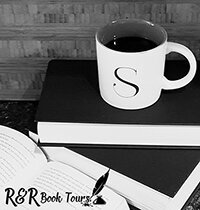
science fiction
fantasy
author interview
books
very short stories
book review
book
Saints and Curses
November 19, 2020
Cover Reveal: Tripping the Multiverse
Tripping the Multiverse: Jade and Antigone #1
Expected Publication Date: January 21st, 2021
Genre: Science Fiction
As a science journalist, Jade has seen more than her fair share of peculiar oddities—none weirder than her socially inept fellow reporter Antigone. When the test of a teleporter using an electron collider goes awry, the two women find their world changed in subtle ways, with anomalies breaking out in their personal lives. Their increasingly unstable dimension gives Jade the ability to shapeshift while Antigone can see portals into other worlds.
A fellow journalist who attended the experiment is trapped in another dimension and Jade and Antigone hold the key to saving him. Of course, their task is not just a simple rescue mission. Realizing they will continue to drift into increasingly stranger worlds until they straighten out the paradox, the women reluctantly agree to travel through the multiverse in search of a solution.
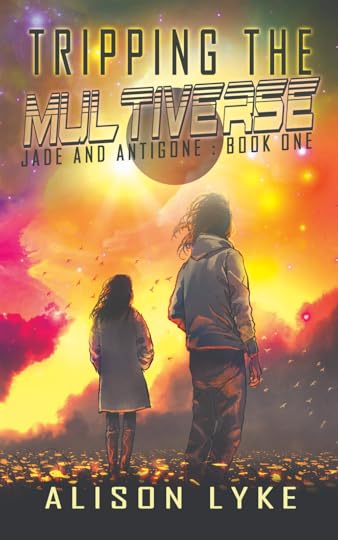
Cover of Tripping the Multiverse by Alison Lyke
If you purchase the book prior to the publication date of January 21, 2021, they may use the promo code: PREORDER2020 to receive a 15% discount.
Promo Pre-Order Link: https://www.blackrosewriting.com/scififantasy/trippingthemultiverse

Alison Lyke, Author of Tripping the Multiverse
About Alison Lyke
I’m an author and an English and Communications professor from Rochester, NY. I’m an insatiable reader and a dedicated writer. I’ve spent many years honing my skills and I now enjoy helping others find and explore their own voices. I write fantasy and science fiction and I aim to captivate and inspire. I’ve written two published novels: a modern mythology titled Honey, which came out in 2013 and Forever People, a cyberpunk science fiction slated to come out in the spring of 2019. I also regularly contribute poetry and short stories to literary magazines.
Website: http://www.alisonlyke.com/
Social Media: Twitter, Facebook, and Goodreads
author interview
book
book review
books
fantasy
science fiction
very short stories
Sapience
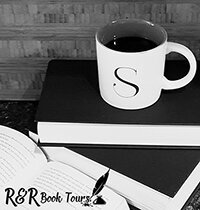
November 15, 2020
Interview with Writer Olga Gibbs, Author of the Celestial Creatures Series
My next interview is with Olga Gibbs, a fantasy author who also has a background in mental health for young people. Given the intensely stressful time for everyone with the Covid 19 cases increasing so dramatically, I figured she’d be a great person to interview next!
Tell us about yourself! What would you like readers to know about you?Olga Gibbs: I am an author and a writing mentor, studying for Masters in Creative Writing, with a background in adolescent psychology and mental health, after years of working with young people in therapeutic and supportive settings.
Alexis: Awesome! I imagine that writing and psychology would compliment each other, especially when it comes to character development.
What book or books have most influenced you as a writer?
Olga Gibbs: I was born and spent my formative years in Russia (USSR back then), so the reading that have influenced my taste in literature and my subsequent writing is predominantly by Russian authors. For example, I love “Crime and Punishment” of Dostoyevsky and as result it had influenced my reading taste, and my writing. I’m always intrigued by morally grey characters and moral dilemmas, like the one which is a theme in the above book: “Is it okay to kill a bad person?”
I want to be surprised when I’m reading a book. I want to like a baddie. I want to question my view of the world when fictional characters ask questions.
But I like adventure stories too. I like high-concept, plot-driven stories. In particular, I love adventure stories of Dumas. “Count de Monte Cristo”, “Three musketeers”, I think he is the first and true high-concept writer and would’ve made a killing should he lived in our times.
What are some tropes of fiction in your genre that you love/hate? Why?Olga Gibbs: Hate: A female character portrayed as a weak one, in need of saving, usually by a male.
Love: A good plot-twist at which I can gasp in shock and surprise.

The Celestial Creatures Series by Olga Gibbs
Who is your favorite character in your book? What do you like about them?
Olga Gibbs: Ariel, the main character in the “Celestial Creatures” series. She was written because of the girls I worked with. She was written for them.
The market of children’s fiction is sterile. It’s gate-guarded by parents, teachers, librarians and truly broken characters with uncomfortable topics rarely find their way into the market. The children like the ones I work with are not represented in books. Their stories are too uncomfortable, too cruel, and therefore often hidden.
So I wanted to give those girls a voice. One day I thought: “These girls have seen nothing good from humanity; nothing but abuse, cruelty and suffering”, and then I began to wonder what would these girls do to humanity, to everyone who hurt them, if they had the power? If they were, say gods, placed above the ones who hurt them, who didn’t care for them or broke them, what would they do then? What would power like that do to a person, but most importantly, what would it do to a girl like Ariel? Would she follow the mainstream religious preaching on forgiveness or would she take revenge?
I crafted Ariel honestly: with her PTSD manifestations, with her failed childhood attachments, with her teenage overreactions and maximalist views. I gave her schizophrenia, and according to a few readers’ reviews, I’ve tackled that difficult diagnosis honestly and realistically too.
You see, even here I chased a multi-layered story with grey and confusing characters. The “Celestial Creatures” is not just a fantasy, it’s so much more than that. It’s a commentary on the childhood abuse, on social class divide, on injustice, survival in cruel world and metamorphosis. I have written it in a fantasy genre because if I would’ve written it as a contemporary piece, it would’ve been too real, and the children, and adults, abuse survivors wouldn’t have wanted to re-live their past traumas. I gave some, special, readers the character they can relate to, but the story they can escape through.
Alexis: You’ve clearly thought very deeply about your characters. I do find children’s literature very sterile, and I worry that children facing real-life problems won’t see themselves in books. I love the idea of YA books tackling issues like mental illnesses and child abuse.
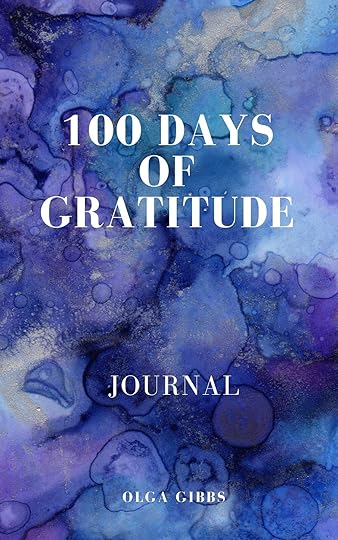
100 Days of Gratitude by Olga Gibbs
I noticed from your bio that you have a background in mental health. Has that informed your writing?
Olga Gibbs: Absolutely. Understanding human behaviours and responses to certain situations helped me realistically craft my characters, although sometimes I find myself battling with stereotypes that readers place on my characters, because of their initial manifestations or appearances in the story. But that was expected. As I said above, I love confusing characters with ambiguous goals, so I write my characters with many layers, many motives, with hidden desires. I love playing with characters and with readers. Life is not black and white. Only when we come closer and spend some time assessing new people we know who is a friend or foe, and I don’t feel that stories should be any different. As I said before, I love to be surprised and I’m writing for readers who want to be surprised too, gasping at unexpected twists and turns.
Are there any books or types of reading or writing you'd recommend to anyone struggling with their mental health during the pandemic?Olga Gibbs: We are all different, and our responses to stress are different too. Some prefer escapism, whilst others seek to exercise total control over a situation. My main advice: know yourself and listen to yourself and your mind. Give yourself and your mind a break. If you feel overwhelmed, take a step back and unwind, treat yourself to something that makes you happy, and above all, shift your focus from negativity to positivity.
In terms of reading: I wouldn’t recommend anything challenging, that pushes your self-discovery and self-acceptance too far, as without help, or in the difficult environment that as we are in currently, it might push us into depression.
In time of pandemic, I suggest to take it slowly and softly. Positivity, positivity and again positivity! Look for it, create it.
One thing I would suggest that anyone can do and that doesn’t take much time or psychological training is gratitude journaling. It’s a diary, but instead of writing everything that happened to you in a day, you write only positives, and if you can’t find any positives, you learn to give thanks: looking at the day, at your life, at small and everyday things in your life, you give thanks. This technique has a great benefit and it amends our mind and outlook on life. It challenges us to look for positives, making lists of good things in our life. It activates “good” neurons in our brain, rewiring them, establishing new, good, life-long connections. A gratitude journal is an easy, yet very effective tool.
And if it’s okay, I’ll mention the gratitude journal that I developed: “100 days of gratitude”. I developed it to create a culture of appreciation in one’s life. The “100 days of gratitude” is filled with daily prompts and the way the book is structured: it progresses gently from noticing little good things in our lives to promoting and encouraging our acceptance of self, as we step into therapeutic letter writing in the final days (the link to the journal below).
What do you like to do other than read or write? Do you have any interesting hobbies?Olga Gibbs: I paint, mainly abstracts, as I had an art training. I love cooking and knitting.
Art allows me to express myself, whilst cooking and knitting help me unwind.

Olga Gibbs, author of the Celestial Creatures Series
More about Olga Gibbs
Books: “Celestial Creatures” series, 100 days of Gratitude, and Anxiety Journal: Record, Analyze, Manage
Social Media: Facebook, Twitter, and Instagram
science fiction
fantasy
author interview
books
very short stories
book review
book
Saints and Curses
November 11, 2020
Interview with Rory Michaelson, Author of Lesser Known Monsters
It’s been a wild week here in the United States, but it looks like the horrible orange monster that infected our country is on his way out of the White House. So it feels appropriate that my next interview is with Rory Michaelson, author of the queer dark fantasy, Lesser Known Monsters!
Tell us about yourself! What would you like readers to know about you?Rory Michaelson: Oh, I have no idea. I honestly think that you will probably know everything you need or want to know about me by reading Lesser Known Monsters. I’m a little strange, but fun. I don’t take anything too seriously, unless it needs to be – and even then, my humour tends toward the gallows. I value truth, adventure, and love. My anxieties tend to leak out into my characters, each one with a few small morsels of inner fear to help make their poor little hearts beat!
What book or books have most influenced you as a writer?Rory Michaelson: I took a bit of a journey, for many years I read almost exclusively high fantasy. Brandon Sanderson definitely dominated my bookcase, then later Robin Hobb, VE Schwab, and Leigh Bardugo. Really the most my reading has expanded was when I started to write. Once I unlocked the knowledge that not only could I write stories like the ones that I wanted to read – but other people were doing it too – I was hooked. Given the time I gobble up books from indie and traditionally published authors alike, and every one of them teaches me something.
Alexis: Interesting! I do find that I get drawn to different kinds of books now that I’m a writer. I get curious about other genres, or I start wanting to do research on different subjects for the next book.
What are some tropes of fiction in your genre that you love/hate? Why?Rory Michaelson: I hate tropes that are dangerous or damaging to at risk groups. Other than that, I think most tropes are fun if used effectively or subverted. That said, I don’t like the centuries old immortal falling in love with the teenager. Maybe that’s why I write new adult (ha).
Alexis: Oh, I hate that one, too! As if any teenager wouldn’t be horribly dull if you are past the age of 25. Maybe I’m biased about this because I’m a teacher, but I think adult writers who write teenagers often have no idea what they’re really like. They forget how truly young they are.
Who is your favorite character in your book? What do you like about them? (or, which character do you hate most and why)Rory Michaelson: Marcus. I love Marcus, he is my enfant terrible. My absolute disaster boy. When you have a character who is a little unpredictable, it makes dialogue fun and can also really help move the story along or lead it on a fun detour. I don’t want to say too much because I don’t want to spoil anything for anyone...
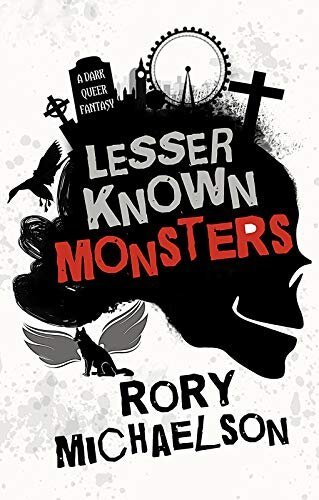
Beautiful cover of Lesser Known Monsters, by Rory Michaelson
What are you doing to de-stress during the pandemic? Is there any coping mechanism you’d recommend (or NOT recommend)?
Rory Michaelson: I am constantly busy! My day job has only gotten busier, I’ve been finishing off Lesser Known Monsters and drafting a new book. Marketing and preparation has really taken a wild amount of time, and we had only recently moved house before everything started off – so I’ve had lots on my plate to distract me!
What do you like to do other than read or write? Do you have any interesting hobbies?Rory Michaelson: I enjoy TV, Movies, and I do a lot of cleaning. I wish I had time for more hobbies, but writing is my top priority when I get any free time! I am kind of handy with upcycling furniture, but I haven’t had time for that in a while. Before the pandemic, we travelled a lot on exciting holidays abroad- which I definitely miss.
Alexis: I miss travelling so much, too.
Tell us about a mystery/urban legend from your hometown (or another place you’ve lived).Rory Michaelson: When I was growing up, a family friend always used to warn us about Jenny Greenteeth. He told us that children shouldn’t go near the river because Jenny Greenteeth would pull us in and drown us. I thought it was a thing he made up, but when I looked it up, it’s a legitimate English folklore of a green-skinned river hag that drowns children...
Alexis: Wow, that’s a pretty terrifying legend! It’s not unlike the La Llorona stories we have in South Texas.
What TV shows/Movies do you like to watch or stream?Rory Michaelson: Movies are quite a commitment! I wish I had time to watch more. I grew up on Buffy the Vampire Slayer, and I think that kind of variety between horror, comedy, action, romance, and adventure has stuck with me. I like a bit of variety in things. Recently I’ve been a huge fan of The Expanse, that’s an amazing show. I enjoy animation too – love She-Ra and Steven Universe.
Alexis: I still love Buffy the Vampire Slayer! It was such an amazing show, especially for its time. I like She-Ra as well, and my daughter loves it.
What’s your favorite animal?Rory Michaelson: I like animals in general, but I don’t get to be around them much because we’re out too much to have pets. I grew up with lots of dogs, so they are always special to me, but taking into account non house pet animals, I’m a little bit obsessed with red pandas.
Alexis: Red pandas are very cute!
Do you like playing video games? What’s your favorite game right now? Has a video game ever influenced you as a writer?Rory Michaelson: I love video games. I tried getting into animal crossing, and it worked for a while, but anything with ‘daily tasks’ tends to make me feel a bit claustrophobic. I’m currently replaying the old Final Fantasy remasters on Switch. Video games have definitely influenced my writing, to me like books, movies, and tv shows they’re all ultimately forms of storytelling – and consuming helps refill and expand your creative well.
Do you like playing board games or role playing games like D&D? If so, which games do you like best?Rory Michaelson: I’ve always wanted to try, but I’ve never had chance. I’m a bit antisocial, and things like that tend to require other humans. I’m not sure how successful it would be – I’m a bit rebellious so I might get annoyed or impatient rather than hooked.
Do you have pet(s)? If so, share a picture of your pet!Rory Michaelson: I wish! We’re always working so we haven’t got any pets. I would like a cat, but my fiancé says we can’t have one because I’m already too much like a cat and he can’t live with two.
What advice do you have for other writers or people just getting started in writing?Rory Michaelson: Listen to other people’s advice with caution. Take your time, trust your instincts, and enjoy yourself. Write for yourself, and don’t worry about making mistakes – that’s probably how you will end up learning your own process best.
How do you choose what books you want to read?Rory Michaelson: I want to read ALL THE BOOKS.
Seriously though, I’m a nightmare. I buy a bunch of books depending on if the sound of them excites me. I am too scared to read my pretty hardbacks so normally end up reading them as e-books. I tend to always have an epic book as my audiobook on the go (because value), and then I usually read whichever book in my kindle library tickles my fancy when it’s time to choose!
I love the title of your book "Lesser Known Monsters," in part because there are so many incredible and interesting dark creatures in mythology or folklore, and yet so many books are just about vampires. What inspired the title for your book, and did you research or read about any unusual monsters when you were writing it?Rory Michaelson: The title came to me when I was thinking about ‘lesser spotted’ varieties of creatures and considered the same for monsters. The thought then followed exactly the same path as your question. I wrote something that later became one of the small excerpts in the book (after some editing) about how humans had created fabled monsters, sparkly vampires and handsome werewolves – but these weren’t anything like real the real monsters. The monsters of myth. I read lots of myths and folklore whilst I was writing. I really liked the idea of certain folklore being connected, and them in fact being the same monster travelling around over the years and being spotted I different locations. A few of them inspired my little intermissions in Lesser Known Monsters, and others I wrote short stories about which will be released later this year (currently and early order bonus through my website for buying Lesser Known Monsters!)

Rory Michaelson, Author of Lesser Known Monsters
More About Rory Michaelson
Book: Lesser Known Monsters
Website: https://www.rorymichaelson.com/
Social Media: Twitter
science fiction
fantasy
author interview
books
very short stories
book review
Saints and curses
November 6, 2020
Clipped Wings: The Rise and Fall of the Women Airforce Service Pilots (WASPS) of World War II
To celebrate the release of an upcoming documentary, Clipped Wings , a book about the female Air Force Service Pilots of WWII (WASPS)!
I’m excited to share this book, because this is a subject I find deeply fascinating and powerful. At a time when we are so close to seeing the first female Vice President, the fearless and sharply intelligent Kamala Harris, this story feels more relevant than ever. Read on for an excerpt from Clipped Wings by Molly Merryman!
In her exhilarating book Clipped Wings: The Rise and Fall of the Women Airforce Service Pilots of WWII, author Molly Merryman shines light on the critical and dangerous work of the daring female aviators who changed history. New York University Press classics series has just updated the book with Merryman’s reflections on the changes in women’s aviation in the past twenty years. A documentary based on Merryman’s work, Coming Home: Fight For A Legacy, is currently in production.
The WASP directly challenged the assumptions of male supremacy in wartime culture. They flew the fastest fighter planes and heaviest bombers; they test-piloted experimental models and worked in the development of weapons systems. Yet the WASP were the only women’s auxiliary within the armed services of World War II that was not militarized.
In Clipped Wings, Merryman draws upon finally-declassified military documents, congressional records, and interviews with the women who served as WASP during World War II to trace the history of the over one thousand pilots who served their country as the first women to fly military planes. She examines the social pressures that culminated in their disbandment in 1944—even though a wartime need for their services still existed—and documents their struggles and eventual success, in 1977, to gain military status and receive veterans’ benefits.
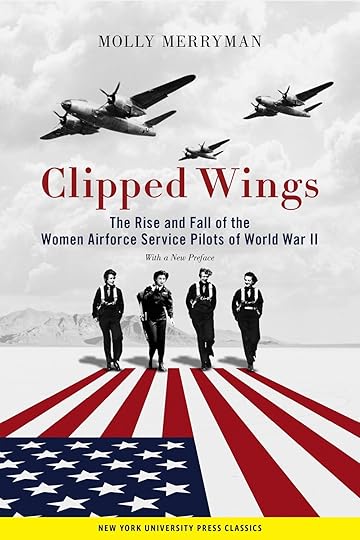
Clipped Wings by Molly Merryman
Excerpt of Clipped Wings :
Airplane ferrying was the initial mission for which WASPs were created, and it would occupy nearly half of all active WASP graduates when the program ended in December 1944. Planes produced in the United States needed to be flown from the factories to air bases at home, in Canada, and overseas. To handle this transportation demand, the ATC hired thousands of male civilian pilots to ferry planes. These male pilots were later commissioned directly into the AAF if they met the requirement and desired commissioning. The WASPs were brought on as ferrying pilots, and by the time they were disbanded in December 1944, they had delivered 12,652 planes on domestic missions. By that time, 141 WASPs were assigned to the ATC. Although they comprised a small percentage of the total Ferrying Division pilots, WASPs had a significant impact. By 1944, WASPs were ferrying the majority of all pursuit planes and were so integrated into the Ferrying Division that their disbandment caused delays in pursuit deliveries.
The days of ferrying pilots were long and unpredictable. At bases that handled a range of planes, pilots did not know from one day to the next what planes they would be flying or how long of a flight to expect. In Minton's words, "We usually reported to the flight line at seven o'clock in the morning and looked at the board to see what had been assigned us in the way of an airplane, where it went and what we would need in the way of equipment to take along, and then we would go out to find our airplane and sign it out at operations and check it over to be sure everything was okay with the airplane. And then we would take off to wherever the plane was supposed to go."
Ferrying military aircraft during World War II was not an easy task. The majority of these planes were not equipped with radios, so pilots navigated by comparing air maps with physical cues (highways, mountains, rivers, etc.) or by flying the beam. (The "beam" was a radio transmission of Morse code signals. A grid of such beams was established across the United States. To follow the beam, a pilot would listen on her headphone for aural "blips" or tones to direct her. This required a great deal of concentration and was not always accurate.) Both navigational techniques were difficult, and this was compounded by the facts that many air bases and factories were camouflaged, blackouts were maintained in coastal areas, and the navigational beams were prone to breaking down. Problems sometimes arose with the planes themselves, which ha d been tested at the factories but never flown. Cross-continental flights often took several days, depending on the planes being flown and weather conditions.
In addition, planes equipped with top secret munitions or accessories had to be guarded while on the ground, and WASPs received orders to protect these planes at all cost. WASPs flying these planes were issued .45 caliber pistols and were trained to fire machine guns.

Molly Merryman, author of Clipped Wings: The Rise and Fall of the Women Airforce Service Pilots of WWII
More About Author Molly Merryman
Molly Merryman, Ph.D. is the founding director of the Center for the Study of Gender and Sexuality and an Associate Professor at Kent State University. She is the Historical Research Producer on the upcoming Red Door Films documentary about the WASP, Coming Home: Fight For A Legacy. She has directed and produced nine documentaries that have been broadcast and screened in the United States and United Kingdom. She is the research director for the Queer Britain national LGBT+ museum and is a visiting professor and advisory board member for the Queer History Centre at Goldsmiths, University of London. Merryman is the vice president of the International Visual Sociology Association.
author interview
book review
books
fantasy
science fiction
very short stories
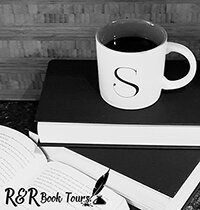
Saints and curses
November 5, 2020
Interview with J. Bock, Author of Caroline
It’s been a tense week, so let’s all relax and have some fun reading new authors! And if you’re interested in science fiction or thrillers, check out my interview with Jeremy Bock, author of the sci-fi crime thriller Caroline.
Tell us about yourself! What would you like readers to know about you?J. Bock: I’m a native of West Virginia but I’m currently living in Bangkok, Thailand with my Thai wife and daughter. My real job is that I’m a technologist, primarily working in web development with a specialization in making web sites and applications accessible to those with disabilities. I’ve been writing as long as I can remember but professionally, I’ve mostly written technical documentation. Far too much to list. I have also co-authored a couple of academic papers. Caroline is my debut novel, and the first piece of fiction I’ve published.
Alexis: Wow, you actually have a fascinating day job (at least , it seems fascinating to non-techies like me)! As a middle school teacher, web accessibility can be an important issue for me, since we often have disabled students in our classes. I also know a blind person who’s an incredible mathematician, and he told me once about all the difficulties they have in making advanced math textbooks, such as high level calculus, accessible for blind students who read braille.
What book or books have most influenced you as a writer?J. Bock: There are many, but novels that immediately come to mind are Slaughterhouse 5 and Sirens of Titan by Kurt Vonnegut. Choke and Fight Club by Chuck Palahniuk. Recent influential novels for me are Armada by Ernest Cline, Artemis by Andy Weir, and Wired by Douglas E. Richards. My novel, Caroline, and the sequel that’s currently in progress is written from a first-person perspective with a goal to explore plausible future technologies with a story and simple, accessible language. What I want most for my readers is for them to have fun reading. And second, I want them to think a little, but only if they want to. And I think Andy Weir and Ernest Cline are at the top of their games in writing novels that achieve those two objectives very well.
The best series I’ve read recently, though, is hands down the Three-Body Problem series by Cixin Liu. That’s not just an inspiration for me but an aspiration.
Alexis: I’ve been meaning to read the Three-Body Problem, since I’ve heard so much about it. I also love Slaughterhouse Five, which is probably a big influence on one of the stories I’m working on now. Vonnegut—I think I’ll forever be haunted by Mother Night.
What are some tropes of fiction in your genre that you love/hate? Why?J. Bock: I’m a science fiction author and I think you can throw in space operas into the same genre. The overuse of proper nouns, paired with hyperbolic literary description of fictional settings exhausts me. When I read, I don’t want to have to memorize the world or universal map in your stories. Nor do I want to memorize the names of many different technologies or space ships. I’m also tired of end-of-civilization scenarios where all our societal systems break down and the technologically advanced culture must become agrarian to survive. Neither of these are fun for me.
Alexis: Agreed! I just find it so unlikely that civilization would break down so much. I think if something like that happens, the majority of the people were probably agrarian to start with, and the technologies were mostly used as playthings for the elite (see ancient Rome).
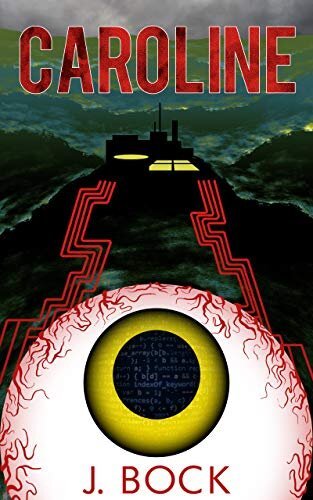
The very intense cover of J. Bock’s sci-fi thriller, Caroline.
What are you doing to de-stress during the pandemic? Is there any coping mechanism you’d recommend (or NOT recommend)?
J. Bock: I just try to keep as busy as I can with work and writing helps probably the most with stress. I also exercise as much as I can, mostly weightlifting. Keeping good nutrition is important, but so is letting it slip. The inability to travel is the hardest. Homesickness is absolutely setting in. I don’t have any solutions for anyone. Don’t drink too much. Take care of those who need to be taken care of. Escape how you can.
What TV shows/Movies do you like to watch or stream?J. Bock: Lately, I’ve been diving into Narcos. Both the original and Mexico. I’ve got a pretty important subplot in my next novel involving the Mexican drug cartels. Consider it research, but Narcos is amazingly put together.
Do you like playing video games? What’s your favorite game right now? Has a video game ever influenced you as a writer?J. Bock: I do. I exclusively play my Nintendo Switch. And lately, it’s been NBA2K21 and Mario 3D All-Stars. But I also sunk a ton of time this year into Fire Emblem: Three Houses and Breath of the Wild. If anything, these games distract me from writing. Though RPGs can guide you through a story with a sense of emersion and progression, and even though the stories in the RPGs I’ve played haven’t inspired me, the experiences I get from playing them have.
My favorite game now and of all time will always be Final Fantasy IX.
I’ll probably buy a second-generation PS5.
Alexis: I loved Breath of the Wild. But yes, video games can be both an inspiration and a distraction. Still, especially since the pandemic started and I’ve felt stressed and frazzled, sometimes they’re a valuable escape.
How do you choose what books you want to read?J. Bock: I read whatever’s most popular in the genre to see what’s selling. But lately, I’ve been seeking out other independent authors in the sci-fi/thriller genre via Twitter or Instagram. There are so many talented people out there in the arts that haven’t cracked their way into the system that are really good at what they do.
Alexis: Yes, I think there’s a value to reading popular books sometimes, but I’m sometimes amazed at how really incredible books can be neglected or ignored by agents or publishers.
I noticed that you are interested in AI, which is a subject that fascinates me as well. I think it's one of the sort-of neglected and ignored potential crises of our time. Yet, I think that AI could also benefit mankind if (a big if) it were created with enough forethought and consideration. What are some of your thoughts? Would a super-intelligent AI be a terrible danger to humanity? How close do you think we really are to the singularity?J. Bock: First off, I am a technologist but my specialization isn’t in artificial intelligence. However, I have read a fair amount of research done by people that are a lot smarter than I am. I think life-changing AI is already here in the form of social media and advertising algorithms that feed our information spheres. While this already is an enormous concern of mine as our online discourse is becoming more and more corrupt and divisive, I’m more concerned with how AI will be used (or misused) in large scale control systems and the cybersecurity around those control systems. That concern is exactly what I explore in the main plotline of Caroline.
The future of AI is going to be good and bad but most importantly: inevitable. And I don’t think it’s going to be possible to apply enough care and consideration to stop the bad. Advances in AI are going to come from everywhere all over the world by both good and bad actors, and that’s something we’re going to have to adapt to.
As for the singularity, I think you are referring to artificial general intelligence (AGI) or an AI that is autonomous from us with its own motivation; something that resembles a human but is far more advanced than we can comprehend. I won’t say that that’s an impossibility but it’s something that feels, to me, pretty far off. However, what doesn’t feel far off is an AI that looks like AGI on the outside, but is a lot dumber with more access and influence over systems than it should have.
Alexis: Interesting thoughts. I agree that the advertising algorithms and social media feedback loops have already become a huge and frightening problem. So many people are so angry and misinformed, and that will make some of them dangerous.

Writer J. Bock, Author of the Sci-Fi Thriller Caroline
Learn More About J. Brock!
Book: Caroline is available on Amazon and Apple Books, and as a Web Series
Social Media: Twitter, Instagram, and Goodreads
author interview
book review
books
fantasy
science fiction
very short stories
Sapience
November 1, 2020
Interview with Horror Writer and Poet A.P. Duvall
I’ve been reaching out to other writers much more lately, and I’m hoping to start doing some more author interviews! So check out my latest interview, with poet and horror writer A.P. Duvall, the author of Ichor!
Tell us about yourself! What would you like readers to know about you?
A.P. Duvall: I’m a debut author who has recently self-published. I grew up and spent most of my life in Florida, I’ve been married for nearly four years and we are servants to a dog and two cats. I’m a movie fanatic, I’ll read just about anything, and my favorite music genres are the blues, folk, and rock and roll.
What book or books have most influenced you as a writer?A.P. Duvall: As a writer, I’m mostly influenced by horror writers, so I bow at the altar of Stephen King. IT, Misery, The Tommyknockers are a few of my favorites. My novel, Ichor, was also influenced by the John Dies at the End series by Jason Pargin, and Vonnegut’s treatment of characters in stories like Slaughterhouse V and Timequake were real eye-openers for me.
Alexis: I’m also a fan of Kurt Vonnegut, and I agree that Stephen King is definitely the horror master!
What are some tropes of fiction in your genre that you love/hate? Why?A. P. Duvall: It’s hard for me to become invested in monsters that just tick the box of the conventions. Vampires, werewolves, ghosts, zombies, etc, there needs to be some sort of original twist on them, if you’re just ripping off Bram Stroker or George Romero, I don’t really find it all that interesting. But I do love an original concept, a new threat, a unique motive, a fear that’s been unexplored, horror novels can really be about the darkest subject matter and be absolutely enthralling.
Alexis: It’s interesting how so many monsters get used over and over, ad nauseum. I do wish that people would branch out more—there’s so much rich monster stories and folklore out there!
Who is your favorite character in your book? What do you like about them? (or, which character do you hate most and why)A.P. Duvall: Each character has a little bit of me in them, so it’s hard to pick and choose favorites because it’s like choosing the favorite part of your psyche. Having said that, the character that was the biggest hurdle for me to overcome was a character named Hugh Gleason. He’s talked about so much before the audience gets to be in his point of view, and I knew he had such a rich story to tell, and honestly, it scared me. Once I dove in, he actually came surprisingly easy. He was so melancholic, so weary, so bruised and battered by the circumstance that he’s in, that my heart went out to him, even while I was completely responsible for his misfortunes.

A.P Duvall’s adorable kitties!
What TV shows/Movies do you like to watch or stream?
A.P. Duvall: I love films from directors like Kubrick, Scorsese, Fincher, Kurosawa, Ridley Scott, I’ve been slowly making my way through ‘best-of’ lists, watch more foreign films and trying to be a more well-rounded film nerd.
When I need to binge a TV show I’ll go for Arrested Development, Law and Order: SVU, or anything with Gordon Ramsey, that’s not including all the prestige shows from HBO and the like.
Alexis: Arrested Development is a great show, and I also enjoyed watching Gordon Ramsey’s Kitchen Nightmares!
A.P. Duvall: I’m always torn with this question. The octopus is so alien, intelligent, lives underwater but has a beak, they can camouflage, shoot ink and they just look terrifying, but also kind of cute, like if you could have an octopus for a friend, I think that’d be pretty cool. On the other hand, I also love crows and ravens. They’re also extremely intelligent, can use and even make tools, they engage in play, bartering, and again, can look scary at first. Something about really smart non-primate animals are really interesting to me.
Alexis: There are flocks of crows in my town right now (I think they’re migrating), and every time I see them I sort of wish I could convince one of them to be my backyard crow friend. They’re great birds to watch, because they always seem to be having conversations with each other. I do think it' would be incredible to talk to a octopus, or learn to understand how such a different creature thinks.

Ichor, by A.P. Duvall, with a beautiful cover design by Duvall’s wife
What advice do you have for other writers or people just getting started in writing?
A.P. Duvall: Just write what you know and to know yourself. If trying to figure out a character’s motives feels like pushing a boulder up a mountain, maybe you need to bring your characters closer to yourself. I’m not saying everything has to be autobiographical, but writing is a form of self-expression, that means you’re expressing your self, your truth, your ideas – just write what means something to you and you should be fine.
Do you like Greek/Roman/Norse/Asian/African mythology or folklore? What’s your favorite myth?A.P. Duvall: I incorporated a bit of Greek mythology in my novel, even the title Ichor, comes from Greek mythology , it was what they called the blood of the Gods, golden in color and toxic to mortals, and when I came across it in my research big chunks of the narrative fell into place. I’m trying to learn more about Norse, and African mythologies, all cultures have incredibly interesting and revealing stories that go back thousands of years and are very indicative of our shared history and humanity.
If you write sci-fi, what technology, innovations or scientific discoveries have inspired your work?A.P. Duvall: Theories of multi-verses and time travel are incredible to me. I’ve been trying to learn more about AI and how we may be incorporating it into our lives and even ourselves in the future is incredibly interesting. It’ll be a whole new world soon if we can make it that far. We have these issues with privacy now, what will it be like when our bodies and computers are one and the same? What will humanity mean when we can create thinking machines that are capable of making choices and have autonomy. These aren’t new ideas, but they are endlessly fascinating.
What feels different to you about writing poetry versus working on a novel? Do you feel that these are very different kinds of writing, or do they feel more connected to you?A.P. Duvall: The main difference is speed. I took a long time on my novel, but poetry comes very quickly, but I do feel that they are connected in a lot of ways. Fiction writing should have moments of poetic beauty and poetry should tell a story. The first poems we read are probably Dr. Seuss, Shel Silverstein, or nursery rhymes, and they all tell stories that stay with us for a long time, and when you read a great book it’s the beautiful and simple phrases that stand out above just the plot or characterizations.
Alexis: I like the idea of poetry telling a story, because so many of the best poems do tell a story, even if it’s just capturing a single moment in time.

A. P. Duvall, Poet and Horror Writer, Author of Ichor
More about A.P Duvall
My debut novel, Ichor is available exclusively on Amazon on Kindle, Kindle Unlimited or in paperback. I recommend the paperback to really appreciate the beautiful cover my wife designed, but I’m biased.
My website is notesfromthehole.com, where I post poetry, drawings, and will soon upload some short stories soon. I can be found on Twitter @ap_duvall.

A.P. Duvall’s fluffy doggie!
author interview
book review
books
fantasy
science fiction
very short stories
writing
Sapience



